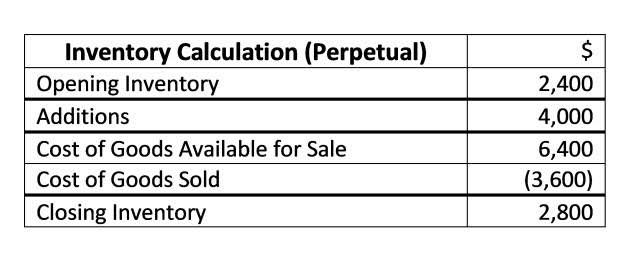
The Five Minute Payroll monograph explains how to do simple cookie-cutter payroll for most one-employee S Corporations using base salary amounts of $10,000 a quarter or $16,000 a quarter. Furthermore, the e-book provides some common-sensed tips you can use to set a reasonable salary for your S corporation and to minimize your state payroll taxes burden, too. Even though an S Corp may not need to pay tax on Online Accounting its business profits, it is still recognized as a separate entity from its owners, and the company is still required to file an annual tax return. Income Tax Return for an S Corporation which includes information on the S Corp’s income, deductions, and payment activity. S Corps are also required to distribute Schedule K-1, Shareholder’s Share of Income, Deductions, Credits, etc. to each shareholder.
- The IRS wants you to pay yourself a salary that you’d pay someone else to do your job for you.
- Paychex handles all your tax calculations and filings throughout the year, from quarterly 941s to annual W-2s and state tax reports.
- This salary amount can be based on market data, industry norms, and your own experience.
- Running payroll for an S Corp can feel overwhelming, especially if you’ve never had to run payroll for a small business before.
- For example, if $40,000 a year in salary is too high, you can simply halve the wage and tax numbers given in the preceding paragraphs.
A Simple Guide To Effective Employee Management: Benefits & Best Practices

Payroll laws and tax regulations often change, including updates to minimum wage laws, tax rates or employee benefit requirements. If the mistake is found, you might have to pay back wages, overtime and taxes. It ensures employers handle payroll right to avoid fines, legal issues and damage to their business’ reputation. We’ll cover the challenges in payroll compliance, the consequences of not following the law and how a quick payroll compliance checklist with doFoms can help you avoid mistakes.

How to Do Payroll for Single Member S Corporation
So obviously the IRS wants to collect these taxes on your compensation. Will you receive a paycheck quarterly, annually, weekly, or on some other schedule? Note that this salary is separate from any distributions, dividends, or other compensation you might receive from your S Corporation. When you’re operating as an S Corp, you will receive a salary from the corporation. This means you will be required to determine a reasonable salary for the job duties you’re performing for your S Corporation. There are additional rules for S Corp owners – specifically, for those who the IRS considers 2% shareholders.
Employee Classification
- The fact that an officer is also a shareholder does not change this requirement.
- Whether you are an LLC or a sole proprietor, the net income of your business is treated as “self-employment” income and is taxed at 15.3% on top of your regular Federal and State regular income tax.
- When operating a small business, there are many business legal structures that you can choose from.
- You must understand how to pay yourself and prevent suspicion from the IRS.
- That’s why considering your options and consulting with a legal or financial advisor can help ensure your business is set up for success.
S corporations typically pay payroll taxes – Medicare and Social Security taxes – on any salaries paid to s corp payroll employees. Shareholders distributions don’t incur payroll taxes, but they are subject to income tax. If the IRS concludes that an S corporation owner did not receive a reasonable salary after weighing these considerations, it can reclassify distributions received as salary. This means the owner would have to pay back payroll taxes on that income and any penalties the IRS imposes. An S corporation is a business that enjoys the benefits of incorporation without double taxation. The shareholders pay income tax on their earnings, but the corporation as a separate entity does not.


Therefore, the business entity must treat the salaries as employee wages. Remember that the wages paid to employees must be for services performed for the business. So, shareholder-employees must receive reasonable compensation in the form of Partnership Accounting taxable wages for all work. We make the transition easy with expert guidance through every stage, from seamless onboarding and data transfer during setup to ongoing support from a dedicated specialist. Discover the solution to better payroll management to save valuable time, avoid pitfalls, and grow your business confidently.

